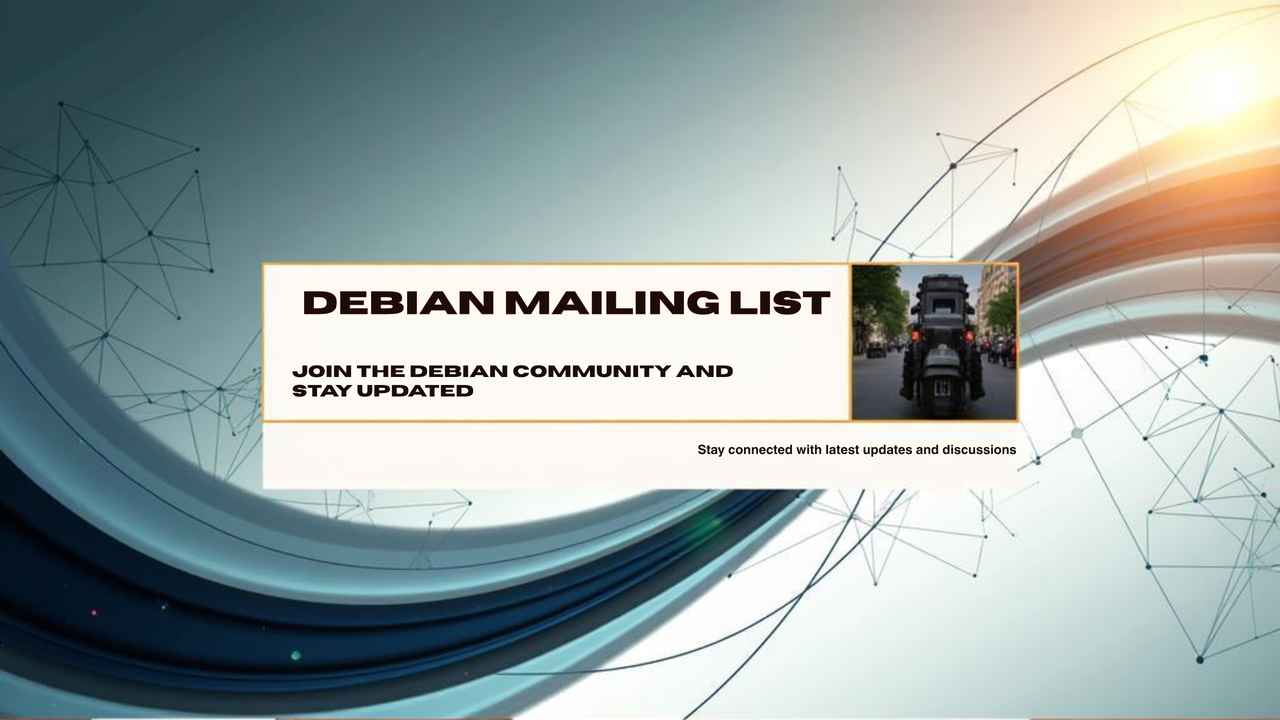What Are Debian Mailing Lists?
Debian mailing lists are like special email groups. When you send an email to the list, everyone subscribed gets it. Similarly, when others reply, you see their messages. This creates a public discussion. People talk about many things. They discuss new features. They ask for help. They also report problems. Think of it as a huge ongoing conversation. This conversation helps Debian grow. It helps solve issues too. There are many different lists. Each list has a specific topic. This keeps discussions organized. It makes it easier to find information. Therefore, these lists are vital for Debian. They are the heart of its communication.
Why Are Mailing Lists Important for Debian?
Mailing lists are super important for Debian. First, they help people share knowledge. Many smart people use Debian. They share their expertise. This helps others learn. Secondly, they help solve problems quickly. If you have an issue, you can ask. Someone on the list might know the answer. They can guide you. Also, they help make Debian better. Developers discuss new ideas. They get feedback from users. This makes the system stronger. In addition, they build a community. People feel connected. They help each other out. Thus, these lists are key to Debian's success. They ensure everyone can contribute.
Up-to-date telemarketing data eliminates dead leads, enhancing customer engagement, improving response rates, and allowing businesses to maximize every call for measurable impact and revenue.
How to Join and Use Debian Mailing Lists
Joining a Debian mailing list is easy. First, you need to find the right list. Debian has a website for its mailing lists. You can browse through the topics there. Choose a list that interests you. For example, there's a list for general questions. There's another for security updates. Once you pick a list, you subscribe. This usually involves sending an email. You can also use a web interface. After subscribing, you will get emails. These are messages from other members. You can also send your own messages. Remember to be polite. Always follow the list rules. Also, search the archives first. Someone might have asked your question already. This saves time for everyone. Therefore, proper etiquette is important.

Different Types of Debian Mailing Lists
Debian offers many types of mailing lists. Each serves a unique purpose. For instance, there are user support lists. These are for people seeking help. Developers use other lists. They discuss coding and technical details. There are also lists for specific projects. Some lists focus on translations. Others are about specific hardware. This wide variety is helpful. It keeps discussions focused. It also ensures relevant information reaches the right people. You can find lists for almost any Debian-related topic. Exploring them can be very rewarding. Ultimately, these diverse lists support the entire Debian ecosystem.
Tips for Effective Communication on Mailing Lists
Communicating effectively on mailing lists is crucial. First, always be clear and concise. Get straight to the point. Long, rambling emails are hard to read. Second, use a descriptive subject line. This helps others understand your email's content. It also makes searching archives easier. Third, be patient when waiting for replies. People are volunteers. They may be in different time zones. Fourth, be polite and respectful. Even if you disagree, maintain a civil tone. Finally, avoid sending private messages to the list. Keep discussions public. This helps everyone learn. Consequently, good communication benefits the whole community.
Archiving and Searching Mailing List Discussions
Every message sent to a Debian mailing list is saved. This is called archiving. These archives are very useful. They contain a huge amount of information. You can search them easily. If you have a question, search the archives first. Someone might have asked it before. The answer might already be there. This saves time for you and others. Also, archives are a great learning resource. You can see how problems were solved. You can learn from past discussions. Many old debates are still relevant. Therefore, always check the archives. They are a treasure trove of knowledge.